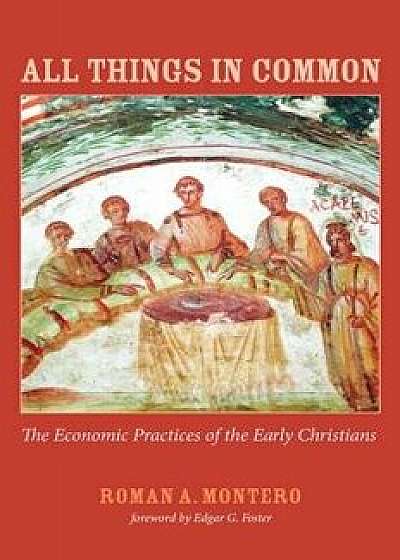
All Things in Common, Paperback/Roman A. Montero
Descriere
All Things in Common gets behind the "communism of the apostles" passages in Acts 2: 42-47 and 4: 32-37, using the anthropological categories of "social relationship" espoused by David Graeber and other anthropologists. Looking at sources ranging from the Qumran scrolls to the North African apologist Tertullian to the Roman satirist Lucian, All Things in Common reconstructs the economic practices of the early Christians and argues that what is described in Acts 2: 42-47 and 4: 32-37 is a long-term, widespread set of practices that were taken seriously by the early Christians, and that differentiated them significantly from the wider world. This book takes into account Judean and Hellenistic parallels to the early Christian community of goods, as well as the socioeconomic context from which it came, and traces its origins back to the very teachings of Jesus. This book will be of interest to anyone interested in Christian history, and especially the socioeconomic aspects of early Christianity, as well as anyone interested in Christian ethics and New Testament studies. It would also be of interest to anyone interested in possible alternatives to the ideology of capitalism."What is so sorely needed at the present time is a renewed engagement by Christian thinkers with the church's core beliefs and essential ethics. Roman Montero's new book does that admirably, reminding us that the early Christians had a profound understanding of the church's identity as a community of sharing. . . . Rich in historical detail, rigorous in its scholarship, this book leads us precisely towards the sort of ethical restoration we need today as the church enters a new epoch. Highly recommended." --Addison Hodges Hart, Author of Strangers and Pilgrims Once"Montero examines accounts of communal economic relationships and practices--of having all things in common--among early Christian communities. While not all readers will be convinced by all of the arguments, the discussion is provocative,





